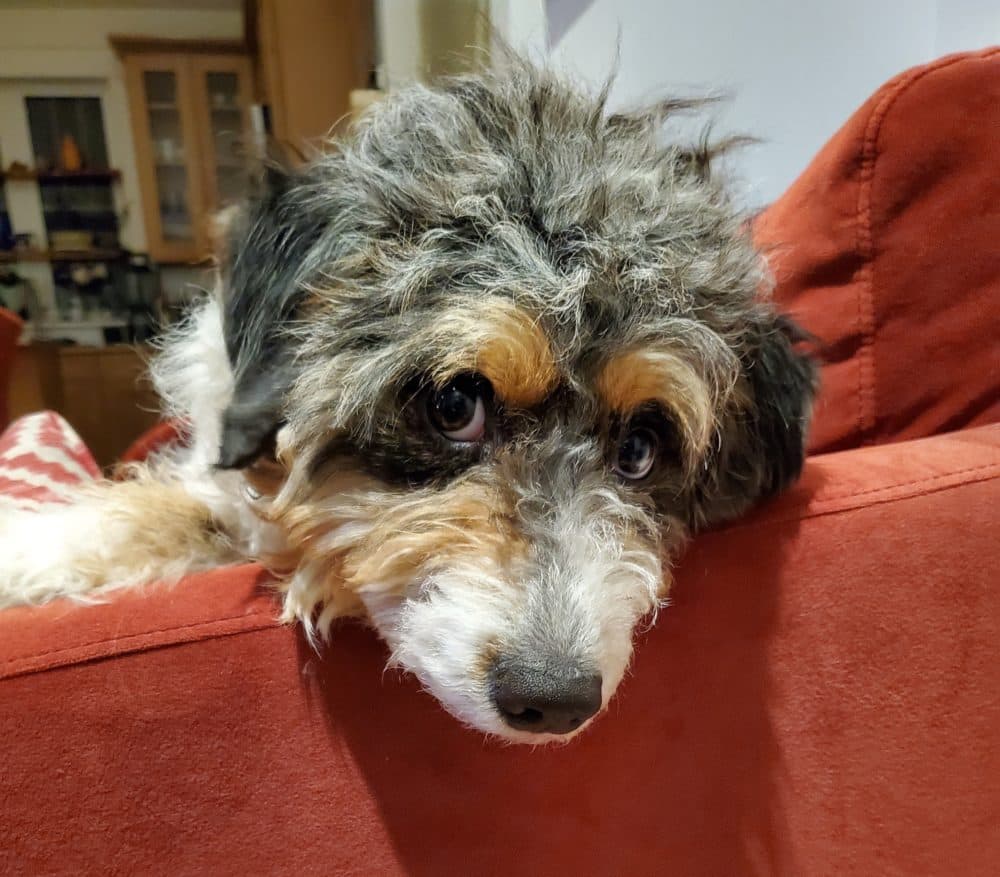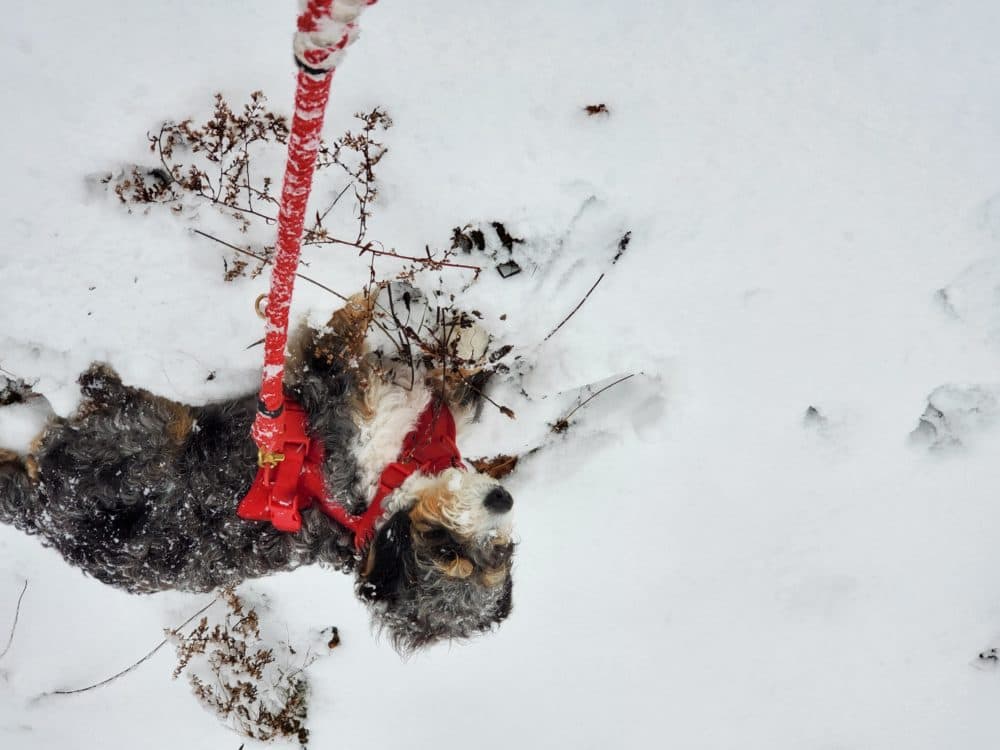Advertisement
Commentary
Not 'Spot,' not 'Fido': She's 'Billie' — and she's enough

When I was pregnant with our first child, my husband and I decided that we needed practice in caring for another living creature. We walked into the local animal shelter and emerged with Brandy, a three-year old dog — part Gordon Setter, part mutt, and all goodness.
We didn’t love the name she came with, but it was generic enough to be inoffensive, and more than redeemed by her personality. She had shining eyes and helicopter tail wag. The fact that she was already spayed and housetrained, had already grown into a hopeless chaser of squirrels and calm companion to humans — that she was a known, predictable animal — sealed the deal.
Brandy graced our lives for about six years. By the time she died, we had two kids, two-and-a-half full-time jobs, a small yard-less house, and neither the time nor the energy to take on yet another beating heart.
But decades later, things changed. We semi-retired. The pandemic forced us to take daily long but boring walks when our gym closed. And then we left the city and moved to a cohousing community that borders conservation land. Now we were witnessing a daily procession of dogs — some prancing, some shambling — parading down the path into the woods. Their humans looked rosy-cheeked and fit. My long-standing but faint dog envy roared back to life, and through our daughter, we found a non-allergenic puppy.

Unlike Brandy, this would be a dog we could name. After endlessly listing and rejecting possible candidates (“Is Kischke too ethnic? Is Flakey too demeaning?”), we called her Billie, after the jaunty Charlie Parker tune, Billie’s Bounce. As with our children, we chose a name based on who we hoped she would be. But unlike our daughters, Billie was 5-months-old when we got her, old enough to give us a sense of who she was.
Or so we thought. We were wrong.
Billie is a puppy, and like our children when they were young, she is changing daily — a teething demolition machine consuming rugs and tissues and remote controls one second, a sighing, serene cuddle bunny the next. And as with our children as babies, I am smitten. Totally besotted.
I think it’s adorable when Billie grabs a plush toy in her mouth and madly shakes it, her soft ears flopping and rump wildly swinging to and fro. I turn to mush despite knowing that what I’m witnessing is Billie’s attempt to break the neck of this faux prey, that the funny squeaks it makes as she bites down on it are meant to emulate some small rodent’s death screams.
Advertisement
As Billie has learned to sit when asked, to relieve herself outdoors, to walk alongside me on the leash rather than encircling and trussing my ankles like a boneless pork roast, I sometimes think, “Our dog is gifted.” Then I remind myself that all of these new behaviors are a product of my cooing approval, belly rubs, and doling out of stinky dog treats. She isn’t brilliant, I decide, so much as just amazingly pliable.
So am I. We have both allowed our feelings and our actions to be governed by the repeated administration of treats. And while tossed bits of beef liver, dehydrated sweet potato, and salmon skin don’t so much for me, her cuddles and gentle licks do.
Is Billie even capable of self-awareness? I don’t know. But I am.
While the reward-seeking and giving that Billie and I engage in may be transactional, our relationship is more layered and nuanced than that. When she does something she knows I disapprove of, she avoids looking at me, in what I’ve decided is an attempt to inure herself to my wishes. And by the same token, when she licks my fingers or face, I choose to interpret that as an expression of love, not just her desire to taste whatever caused the scents that linger there.
I imagine she is purposeful when she officiously bustles around the house carrying her possessions from room to room. This treasured shard of masticated bone belongs under the bath mat. That mauled, eviscerated tennis ball must rest under the table, not next to the closet. But probably this is just programmed, den-building behavior.
Is Billie even capable of self-awareness? I don’t know. But I am. I know these are just stories I tell myself.
She is a dog, a member of a species bred for thousands of years to obtain food and elicit human adoration just by wagging her tail, by prancing from one location with a stick in her mouth (“Tidying up the forest one branch at a time,” my cousin observed), or by gazing into my eyes with soulful, dark eyes of her own.
For all the angst we felt about naming her, I now know that what she (sometimes) answers to doesn’t matter. She needs no moniker from us, no marker of who we’ve decided she is. The more time we spend together, the more I realize that I can love her without anthropomorphizing, without assigning her feelings and motives drawn from my human repertoire. Her essential dogginess is gift enough.
When I see her still and alert, her nose sniffing the cold morning air for hints of skunk and hemlock and compost, I find myself suddenly as attentive as she is. When she shifts the route of our morning walk not by turning so much as bounding in a new direction, I am infused with her joy.
Billie is training me more than I am training her – not just in how to feed her, but when I’m lucky, in how to be a bit like her, an animal, un-self-conscious but keenly aware.
